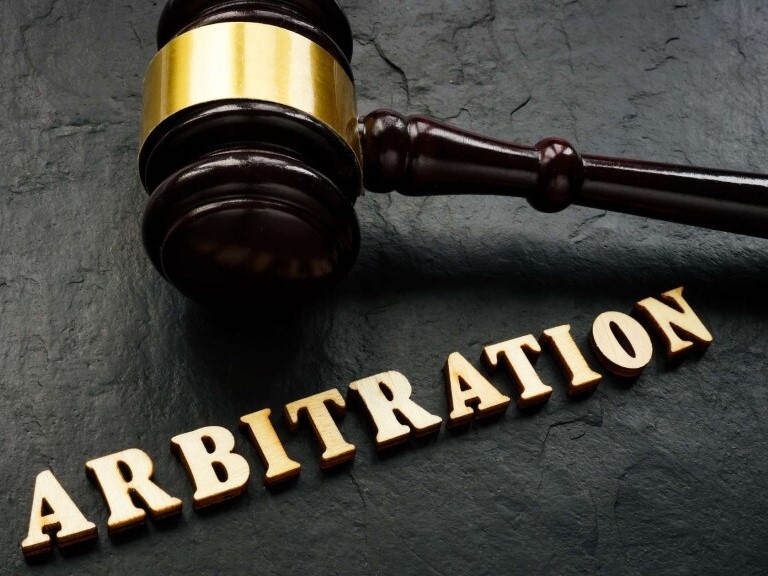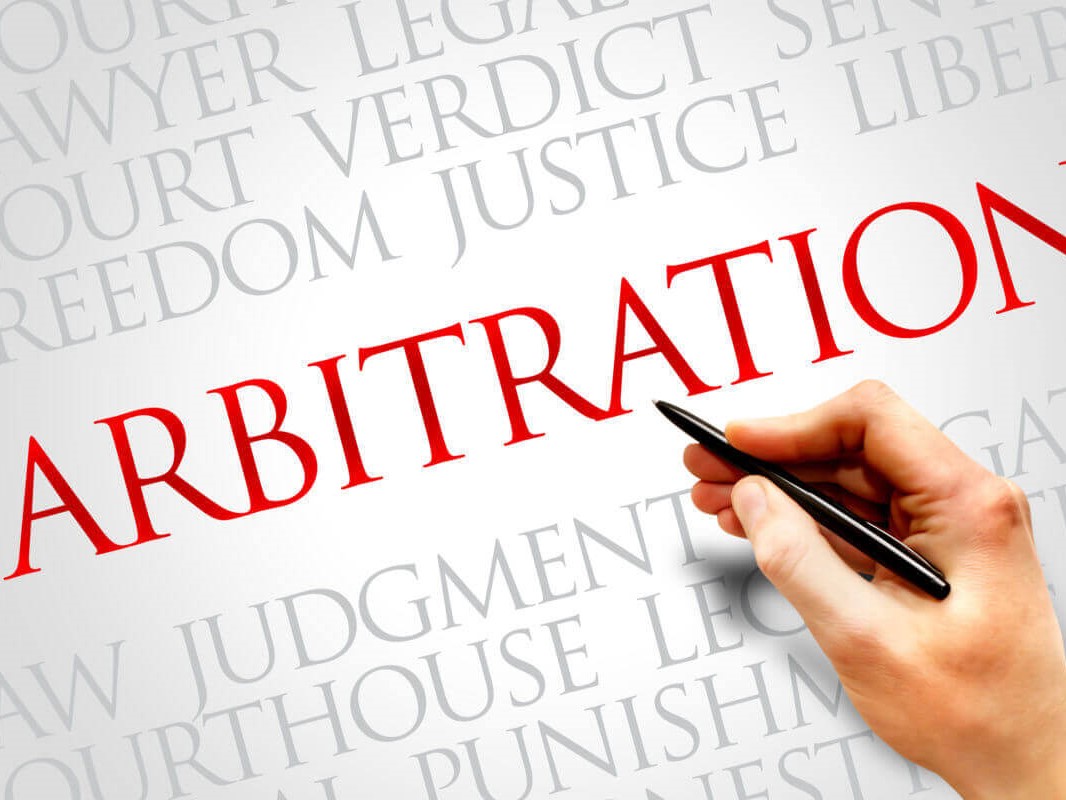Arbitration is a vital aspect of dispute resolution in the UAE, providing an effective alternative to traditional court litigation. Understanding the nuances of arbitration law is crucial for businesses and individuals seeking a swift, confidential, and cost-effective resolution to their disputes. The UAE's arbitration regime is governed by Federal Law No. 6 of 2018 on Arbitration (the UAE Arbitration Law), which is in line with international best practices. This law applies to both domestic and international arbitration, offering parties the freedom to choose arbitration as the preferred method of dispute resolution.


Arbitration proceedings in the UAE are typically conducted privately and confidentially, allowing parties to maintain commercial privacy and confidentiality. The choice of arbitrators is a crucial decision, and parties have the autonomy to appoint arbitrators of their choice. However, if they fail to agree on an arbitrator, the UAE courts can step in to make the appointment. The arbitration award rendered by the arbitral tribunal is final and binding on the parties. While the UAE courts have a limited scope of intervention in the arbitration process, they can address issues of jurisdiction and public policy.
To ensure the enforceability of arbitral awards in multiple jurisdictions, the UAE is a signatory to the New York Convention on the Recognition and Enforcement of Foreign Arbitral Awards. Institutional arbitration is widely used in the UAE, with specialized arbitration institutions such as the Dubai International Arbitration Centre (DIAC) and the Abu Dhabi Commercial Conciliation and Arbitration Centre (ADCCAC) administering arbitral proceedings. These institutions play a crucial role in facilitating and managing the arbitration process.
Understanding the grounds for setting aside an arbitral award is essential. The UAE Arbitration Law provides limited grounds for setting aside an award, primarily relating to public policy considerations. A well-drafted arbitration agreement is critical for ensuring a smooth arbitration process. Parties must exercise due diligence in crafting arbitration agreements to avoid disputes over jurisdiction, procedural matters, or the scope of the arbitration. Legal representation by experienced arbitration lawyers is recommended to navigate the intricacies of arbitration proceedings successfully.
Skilled lawyers can provide strategic guidance, thorough preparation, and effective representation to bolster a party's case. The UAE's commitment to arbitration as an efficient and effective dispute resolution mechanism has solidified its position as an arbitration-friendly jurisdiction. By being well-versed in UAE arbitration law, parties can confidently opt for arbitration as a preferred method of resolving their disputes while ensuring fair and just outcomes.
Arbitration is a widely recognized method of alternative dispute resolution (ADR) that offers parties a compelling alternative to traditional court litigation. It involves resolving disputes outside of the formal judicial system through the intervention of a neutral third party, known as an arbitrator or an arbitral tribunal. In an arbitration proceeding, parties voluntarily submit their dispute to the arbitrator or panel of arbitrators, who act as private adjudicators. These arbitrators are chosen by the parties or designated as per the arbitration agreement, and they possess specialized expertise in the relevant subject matter.
One of the key advantages of arbitration is its flexibility. Parties have the autonomy to tailor the arbitration process according to their specific needs, including selecting the rules, language, and venue for the arbitration. This flexibility allows for a more efficient and tailored resolution process, which can be particularly beneficial for international disputes involving parties from different legal and cultural backgrounds. Confidentiality is another hallmark of arbitration. Unlike court proceedings, which are generally open to the public, arbitration proceedings are private and confidential. This confidentiality allows parties to protect sensitive commercial information and maintain confidentiality during the resolution process.
Arbitration awards are generally binding and enforceable, providing parties with a final and conclusive resolution to their dispute. If one party fails to comply with the arbitration award, the successful party can seek enforcement through the national courts, as most countries are signatories to international conventions recognizing and enforcing arbitral awards. Arbitration is particularly popular in commercial disputes, as it offers a faster and more cost-effective resolution compared to traditional litigation. It also provides parties with a level of expertise and specialization not always available in the court system, as arbitrators with specific knowledge in the relevant industry or subject matter can be appointed.
The prevalence of arbitration is further bolstered by its ability to transcend borders, making it a preferred method for resolving international disputes. It is widely used in cross-border transactions, investment disputes, and global business dealings due to its recognition and enforceability across different jurisdictions. Overall, arbitration serves as a powerful tool for parties seeking a fair, efficient, and confidential resolution to their disputes. Its flexibility, enforceability, and expertise make it an attractive choice for businesses, individuals, and organizations alike, promoting smoother resolution processes and preserving valuable commercial relationships.
Indeed, the UAE Arbitration Law encompasses several distinctive features that contribute to its effectiveness and popularity as a dispute resolution mechanism. Some of these notable features include:
Applicability to Domestic and International Arbitration:
The UAE Arbitration Law applies to both domestic and international arbitration, providing a comprehensive legal framework for a wide range of disputes, whether involving local parties or international entities.
Autonomy and Freedom of Parties:
Parties have the freedom to choose arbitration as a preferred method of resolving their disputes. They can also tailor the arbitration process, including selecting the arbitrators, governing rules, and procedural aspects, based on their specific needs and requirements.
Confidentiality:
UAE arbitration proceedings are private and confidential. This confidentiality helps protect sensitive commercial information and preserves the confidentiality of the dispute resolution process.
Neutral and Impartial Arbitrators:
The UAE Arbitration Law emphasizes the appointment of neutral and impartial arbitrators to ensure fair and unbiased decision-making. The law provides parties with the autonomy to select arbitrators of their choice or, if necessary, seek assistance from the UAE courts in appointing qualified arbitrators.
Enforceability of Awards:
Arbitration awards rendered under the UAE Arbitration Law are final and binding on the parties. The UAE is a signatory to the New York Convention, which facilitates the recognition and enforcement of foreign arbitral awards in over 160 countries worldwide.
Limited Court Intervention:
UAE courts play a supportive role in the arbitration process, with limited intervention in the substance of the dispute. The courts primarily focus on jurisdictional issues and public policy considerations when dealing with arbitration-related matters.
Institutional Arbitration:
The UAE hosts prominent arbitration institutions, such as the Dubai International Arbitration Centre (DIAC) and the Abu Dhabi Commercial Conciliation and Arbitration Centre (ADCCAC), which administer institutional arbitration proceedings. These institutions offer a structured and organized approach to arbitration, providing parties with the support of experienced administrators and well-defined procedures.
Efficiency and Cost-Effectiveness:
Arbitration in the UAE is known for its efficiency and cost-effectiveness compared to traditional court litigation. The streamlined procedures and prompt resolution of disputes make it an attractive choice for businesses seeking a timely and economical resolution.
The unique combination of these features makes the UAE Arbitration Law a favorable and sought-after choice for parties involved in domestic and international disputes. Its recognition and enforceability globally, coupled with the flexibility and expertise it offers, further enhance its position as a reliable and effective dispute-resolution mechanism in the UAE and beyond.
Commercial arbitration offers numerous benefits that make it a preferred choice for resolving business disputes. Some of the key advantages of choosing commercial arbitration include:
Expertise and Specialization:
Parties have the flexibility to appoint arbitrators with expertise and knowledge in the specific industry or subject matter relevant to their dispute. This specialization ensures that the arbitrators have a deeper understanding of the complexities involved, leading to well-informed and fair decisions.
Cost-Effectiveness:
Arbitration often proves to be more cost-effective than traditional court litigation. The streamlined procedures, limited discovery, and quicker resolution contribute to reducing overall expenses and legal fees, making it an attractive option for businesses seeking cost-efficient dispute resolution.
Confidentiality:
Commercial arbitration proceedings are private and confidential, ensuring that sensitive business information and trade secrets remain protected from public disclosure. Confidentiality is especially crucial for businesses aiming to preserve their competitive edge and maintain client trust.
Flexibility and Speed:
Arbitration provides parties with greater control over the dispute resolution process. Parties can agree on the rules, procedures, and timelines, leading to a more flexible and efficient resolution. This speedier process is particularly beneficial for businesses seeking prompt and effective resolutions.
Finality and Enforceability:
Arbitration awards are generally final and binding on the parties. They can be enforced in multiple jurisdictions, thanks to international conventions such as the New York Convention on the Recognition and Enforcement of Foreign Arbitral Awards, providing a reliable and enforceable outcome.
Neutrality and Impartiality:
The selection of arbitrators ensures neutrality and impartiality in the decision-making process. This instills confidence in the parties that their dispute will be adjudicated fairly, irrespective of any potential biases that might arise in a specific jurisdiction.
Preservation of Business Relationships:
Commercial arbitration can help preserve business relationships, as it allows parties to resolve disputes without unnecessary animosity. The focus on maintaining confidentiality and the potential for creative solutions in arbitration often enable parties to continue their commercial dealings post-dispute.
International Reach:
Arbitration provides an ideal forum for resolving cross-border disputes, as it is recognized and enforced in multiple jurisdictions worldwide. This makes it a preferred option for businesses engaged in global transactions and dealings.
Commercial arbitration offers a range of benefits that make it an efficient, cost-effective, and versatile method of resolving business disputes. Its emphasis on expertise, confidentiality, and enforceability makes it a valuable tool for businesses seeking to navigate disputes with greater control, efficiency, and fairness.
When facing complex legal disputes in the UAE, hiring a skilled arbitration lawyer can make all the difference in securing a favorable outcome. At our firm, we take pride in our team of accomplished UAE arbitration lawyers who possess a wealth of experience and expertise in handling a wide array of arbitration cases. Our skilled attorneys have a deep understanding of UAE Arbitration Law and the nuances of the arbitration process, enabling them to provide strategic guidance and effective representation throughout the proceedings. From crafting well-drafted arbitration agreements to selecting competent arbitrators, our lawyers ensure that your interests are protected at every step.
With a keen focus on providing personalized attention to our clients, we take the time to comprehend your specific goals, challenges, and concerns. This allows us to tailor our legal strategies to align with your objectives and maximize the strengths of your case. Whether you are involved in commercial disputes, international arbitration, investment controversies, or any other complex legal matter, our UAE arbitration lawyers are equipped with the expertise and resources to navigate the intricacies of the arbitration process. We are committed to advocating for your best interests and safeguarding your rights throughout the resolution process.
By choosing our firm and our skilled UAE arbitration lawyers, you gain access to a dedicated team that will work diligently to secure a fair, efficient, and satisfactory resolution to your dispute. With an unwavering commitment to excellence and client satisfaction, we strive to be your trusted partner in navigating the challenges of arbitration and achieving successful outcomes for your legal matters. Contact us today to engage the expertise of our accomplished UAE arbitration lawyers and embark on a path to resolution with confidence.